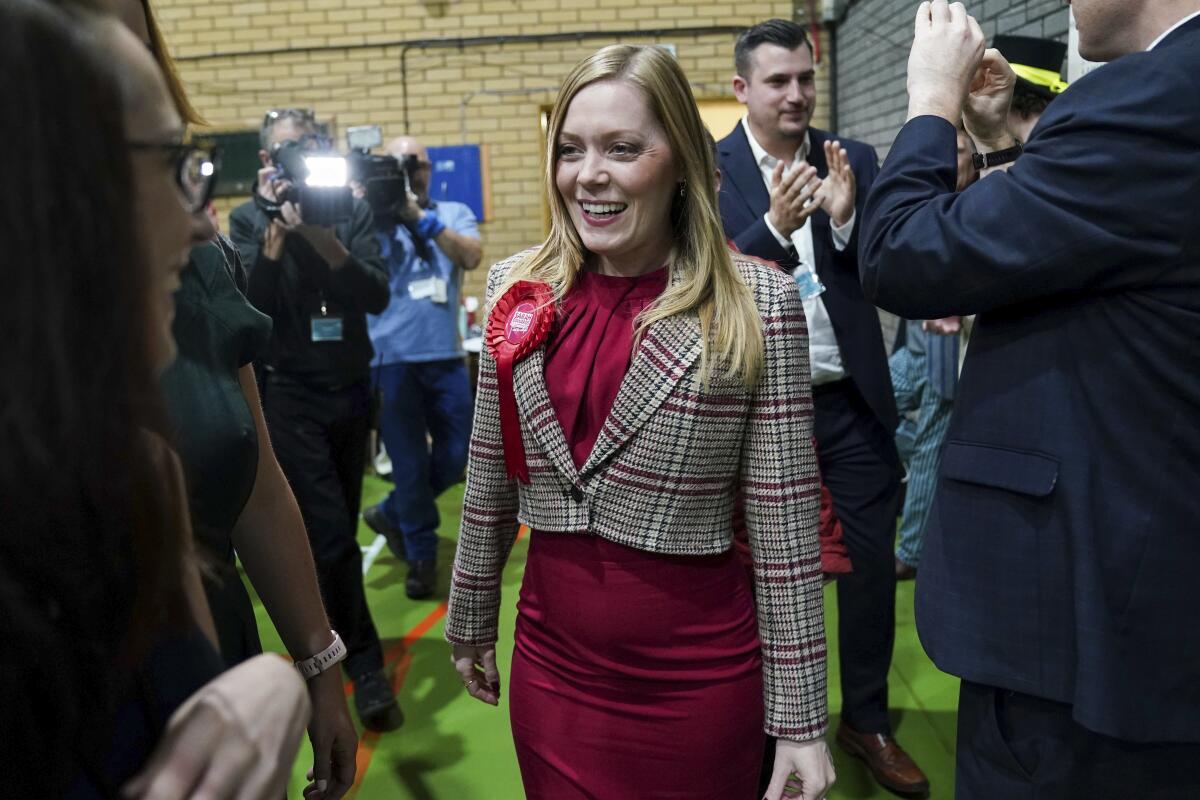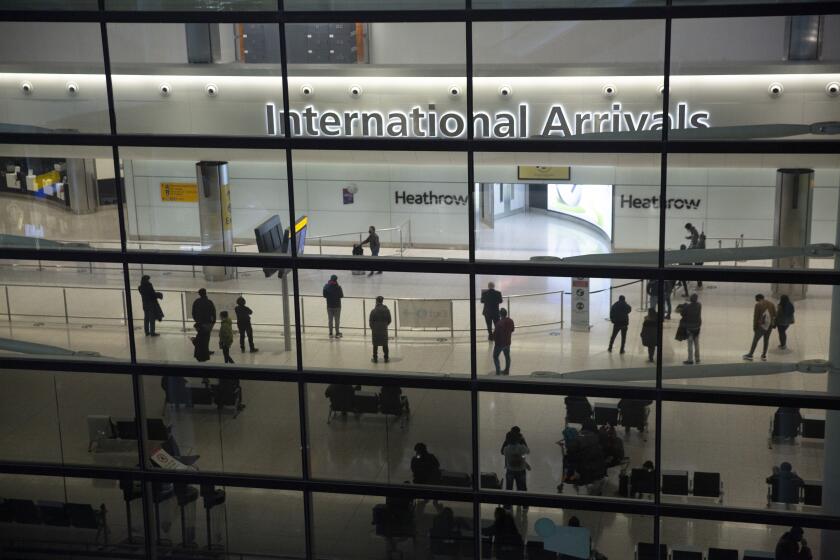Britain’s opposition Labor Party wins two big momentum-building special elections

- Share via
LONDON — Britain’s main opposition Labor Party has decisively won two special elections, snatching seats in Parliament that were long rock-solid bastions of the ruling Conservatives.
Results early Friday showed that voters in Tamworth, in central England, and Mid-Bedfordshire, north of London, abandoned the Conservatives and cast their ballots for Labor in almost unprecedented numbers, solidifying Labor’s status as front-runner ahead of a national election next year.
Labor leader Keir Starmer said his party was “redrawing the political map.”
Sarah Edwards triumphed in Tamworth, where the Conservatives had won by almost 20,000 votes in 2019, and fellow Labor candidate Alistair Strathern took Mid-Bedfordshire by overturning a 25,000-vote Conservative margin.
John Curtice, a polling expert at the University of Strathclyde, said the “exceptional swings” to Labor could be compared to the collapse in Conservative support under then-Prime Minister John Major in the 1990s.
“And we all know how that ended,” he said — in a landslide 1997 election victory for Labor under Tony Blair.
The number of people moving to Britain reached a record high in 2022, renewing debate about the scale of immigration and its impact on the country.
Others cautioned that turnout in Thursday’s voting was low and noted that the elections were unusual because they were held to replace lawmakers who both resigned under a cloud.
Tamworth lawmaker Chris Pincher quit after Parliament’s standards watchdog recommended he be suspended for “completely inappropriate” behavior after groping two men at a London private club. Then-Prime Minister Boris Johnson’s reluctance to sanction Pincher when the allegations emerged helped trigger Johnson’s ouster at the hands of his own party last year.
Mid-Bedfordshire’s member of Parliament, Nadine Dorries, resigned over the treatment of Johnson and her own failure to be appointed to Parliament’s upper chamber, the House of Lords. Dorries is a strong ally of Johnson who has blamed Prime Minister Rishi Sunak for helping to topple the former leader.
Conservative Party chair Greg Hands blamed the losses on “legacy issues” and said people were “happy with the job Rishi Sunak is doing as prime minister.”
British Prime Minister Rishi Sunak wants to stop young people in England from ever smoking by increasing the legal age each year, starting in 2027.
The results add to pressure on the governing party, which has lost several special elections since Sunak took office slightly less than a year ago. He replaced Liz Truss, who announced her resignation a year ago Friday after her plan for unfunded tax cuts sent financial markets into turmoil and rocked the economy.
Truss spent just seven weeks in office after winning a party leadership contest to replace Johnson, who quit after three years in office when scandals over money and ethics turned his own party’s lawmakers against him.
Sunak has steadied the economy but has not managed to boost the Conservatives’ ratings in opinion polls, where it consistently lags 10 to 20 points behind Labor. A national election must be called by the end of 2024.
Friday’s results confirm polls showing the Conservatives losing support across the country, from affluent voters in southern England who are turned off by Brexit to disillusioned working-class voters in the north who had switched from Labor to the Conservatives in 2019 after Johnson promised to spread prosperity to long-neglected areas.
More to Read
Sign up for Essential California
The most important California stories and recommendations in your inbox every morning.
You may occasionally receive promotional content from the Los Angeles Times.















